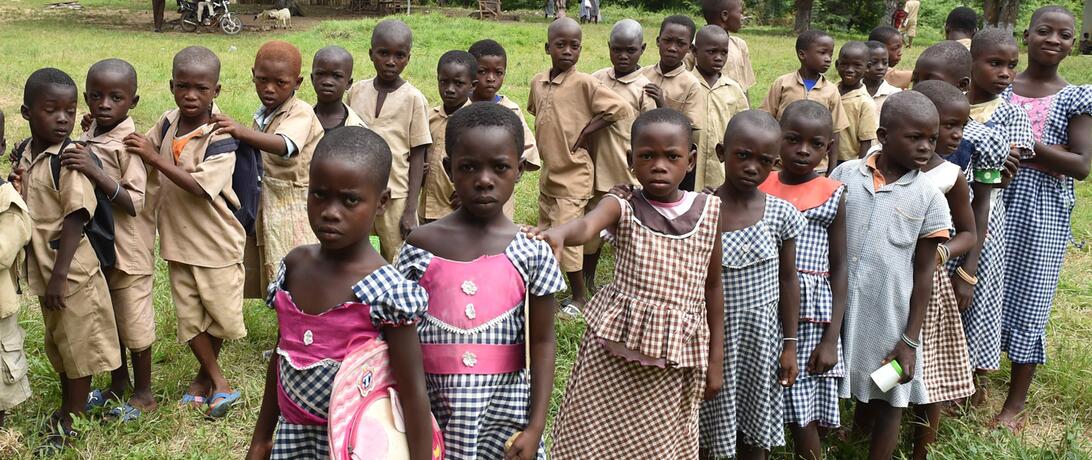
The African continent is expected to account for 80 percent of the projected 4 billion increase in the global population by 2100 and over 80 percent of the increase is expected to take place in cities. In contrast to Europe, Japan, and North America, who are experiencing population growth declines.
The African continent is expected to account for 80 percent of the projected 4 billion increase in the global population by 2100. By 2050, the African population will have doubled to 1.1 billion, and over 80 percent of the increase is expected to take place in cities. This significant growth is taking place in a context where many parts of the world, including Europe, Japan, and North America, are experiencing population growth declines.
Key to leveraging this demographic dividend will be building accountable, resilient, and scalable governance systems at the city level. This will require addressing the immediate challenges that many African cities already face, including tackling systemic weaknesses in rule-of-law enforcement, building in resiliency for climate change and man-made disasters, and improving the socioeconomic environment through basic services and infrastructure provisioning.
Dar es Salaam, Megacity of the Future
Cities like Dar es Salaam cannot afford to get it wrong. The city’s population is expected to increase from 4.3 million (2012) to 15.9 million by 2050. By 2100 it is set to become the third largest city in the world, behind Lagos and Kinshasa, with an estimated population in excess of 73 million inhabitants.
Currently, approximately 70 percent of Dar es Salaam’s population resides in informal, shantytown-like developments. Upwards of 75 percent of these inhabitants are unemployed or underemployed. In this environment, provision of basic services is inadequate at best, and the city routinely suffers from preventable sanitation-borne diseases such as cholera outbreaks.
African Cities Are the Front Line of Combating Poverty
Critics argue African cities such as Dar es Salaam, although successfully reducing basic needs poverty by 70 percent from 2007 to 2012, will simply not have the state capacity to support the rapid population growth expected in coming years.
Although poverty in Africa is declining, the continent is seeing the slowest declines, with poverty rates expected to remain in the double digits by the year 2030. National poverty rates in Tanzania were 28.2 percent according to the World Bank’s basic needs poverty assessment (2011/12). When applying the international standard of $1.25 per person per day (2005 purchasing power parity), the rate rises to 43.5 percent. The concern over stubborn poverty is supported by the growing total number of people who are poor in Africa, with the World Bank noting more people in Africa were classified as poor in 2012 (330 million) than in 1990 (280 million).
Urban Planning for Human Security
Although most of the new poor are found in rural areas in Africa, the rapid urbanization taking place in many African cities is explained as an effort by the rural poor to escape poverty. This in turn places significant pressure on scarce urban resources, and poorly planned cities, resulting in people living in poor and hazardous environmental conditions.
For coastal and rapidly growing cities such as Dar es Salaam, the increasing effects of climate change, with rising seawaters and the frequency of tropical storms on the rise, make urban and disaster risk planning essential. Informal dwellings as found in Dar Es Salam, and elsewhere on the continent, routinely suffer from natural and man-made disasters such as flooding and fires.
City-level governance and urban planning will be at the front line for governments to meet the demands of burgeoning urban populations. If not urgently addressed, this changing demographic trend will become a threat to human security.
Organized Crime and Terror Nexus
Research shows that states lose legitimacy when they are unable to enforce the rule of law, including curtailing corruption, and providing basic services and infrastructure. Combined with an environment of limited socioeconomic opportunities, this becomes a fertile environment for organized crime and extremist radicalization to take root.
Cities that offer a geographically strategic vantage point are particularly vulnerable to transnational organized crime groups. In this regard, Africa’s east coast stretching from the Horn to the northern coastline of Mozambique has become increasingly important for global narcotics traffickers and radical extremist Islamic groups. Research indicates that port cities on Africa’s east coast, such as Dar es Salaam, are playing an outsized role in the trafficking of contraband into and out of the continent.
State Legitimacy through Subnational Governance
In this context, city-level governance is essential to ensuring that current and expected urban development takes place in a publicly transparent and carefully deliberated manner. It is imperative that African megacities of the future start to put in place the building blocks for accountable, resilient, and scalable governance systems. Key focus areas in the short term should include rule-of-law enforcement, urban planning, and the provisioning of basic services and infrastructure. This is fundamental to accommodating the expected rapid growth of cities such as Dar es Salaam, while at the same time guaranteeing human security.
Article Details
Published
Topic
Program
Content Type
Opinion & Insights